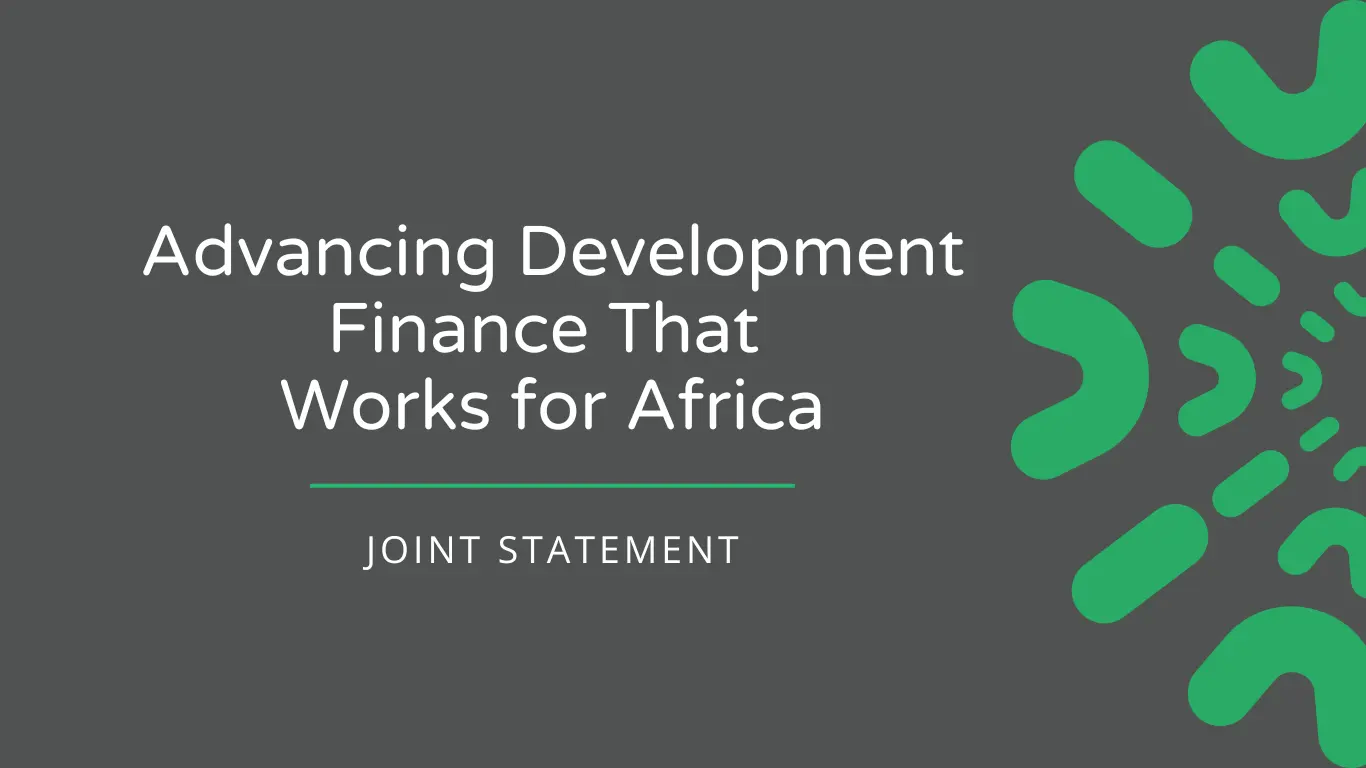Advancing Development Finance That Works for Africa

The African continent holds tremendous potential for transformative growth and resilience against the myriad threats of our time. But in 2025, Africa’s development goals remain far off-track: only 2 out of the 17 United Nations Sustainable Development Goals, with a 2030 deadline, show significant progress in Africa, and implementation of the African Union’s 20 Agenda 2063 goals was 55% at the 10-year assessment in 2023. What’s more, the combined toll of the COVID-19 pandemic and subsequent economic downturn, accelerating climate change, food insecurity, growing debt distress, and other crises have led to what the World Bank is calling a “historic reversal” in economic growth, which in turn has widened the income gap with the wealthiest countries, stalled efforts to reduce poverty and hunger, and further derailed development progress. Additionally, unequal terms for borrowing capital, under which poor countries pay 5-8 times more for credit on international markets than wealthy ones, continue to push African countries into debt distress and challenge their ability to invest in their countries and people.
Change is required to jumpstart African development for the benefit of people and the planet — across Africa and globally. This necessitates robust, inclusive, and just development financing that supports the diverse priorities of African countries and furthers sustainable economic transformation.
Priorities include:
- Increasing concessional financing for African countries, in real terms. Concessional financing remains critical to support African growth and development on terms that do not further debt distress. Countries must follow through on mobilising increased commitments through the IDA21 replenishment, and marshal significant resources to robustly resource the African Development Fund.
- Encouraging and facilitating the strategic use of development financing and private capital mobilisation for human capital investments across Africa, including health and climate resilience. To truly transform African development, investments are needed in people and resiliency, in addition to infrastructure and other traditional focuses of capital. Financial flows to African countries must support investments in universal health care, climate change, education, job creation, pandemic prevention, preparedness, and response, and other areas core to growth and sustainability. There must also be increased accountability and transparent use of development financing, to track where it is being leveraged and what gaps remain.
- Advancing just and sustainable financing for African development, including through mobilising new sources of financing and supporting a fairer global financial system that remedies dramatic inequities in debt and the cost of capital. All avenues must be explored to unlock new sources of financing to drive African development, including better leveraging of existing tools like Special Drawing Rights, increased mobilisation of development and climate finance, and advancing new tools like those being explored by the Global Solidarity Levies Task Force, green bonds, and debt-for-development/climate/Nature swaps. Additionally, action is urgently needed to more holistically assess the borrowing risk of African countries and set equitable and just costs of capital, including through advancing a Cost of Capital Commission at the South African G20.
Signed,
- Accountability Lab
- AfriCatalyst
- Budgit
- The Eastern Africa National Networks of AIDS and Health Service Organizations (EANNASO)
- Global Public Investment Network (GPIN)
- ONE
- Pandemic Action Network (PAN)
- Resilience Action Network Africa (RANA)
